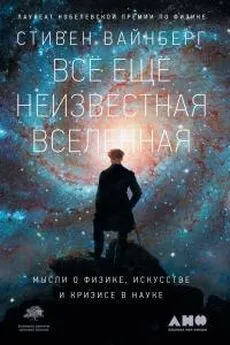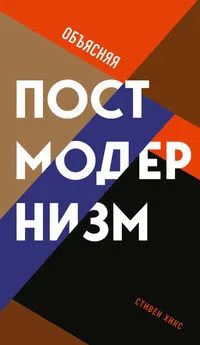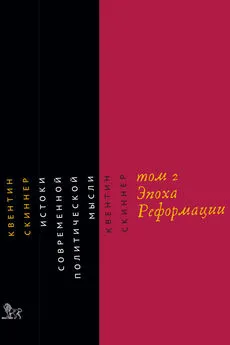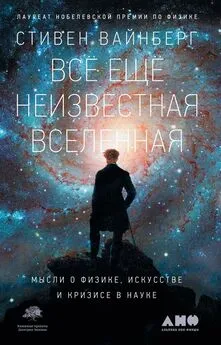Стивен Вайнберг - Объясняя мир. Истоки современной науки
- Название:Объясняя мир. Истоки современной науки
- Автор:
- Жанр:
- Издательство:Альпина нон-фикшн
- Год:2015
- Город:Москва
- ISBN:978-5-9614-4084-3
- Рейтинг:
- Избранное:Добавить в избранное
-
Отзывы:
-
Ваша оценка:
Стивен Вайнберг - Объясняя мир. Истоки современной науки краткое содержание
Книга одного из самых известных ученых современности, нобелевского лауреата по физике, доктора философии Стивена Вайнберга – захватывающая и энциклопедически полная история науки. Это фундаментальный труд о том, как рождались и развивались современные научные знания, двигаясь от простого коллекционирования фактов к точным методам познания окружающего мира. Один из самых известных мыслителей сегодняшнего дня проведет нас по интереснейшему пути – от древних греков до нашей эры, через развитие науки в арабском и европейском мире в Средние века, к научной революции XVI–XVII веков и далее к Ньютону, Эйнштейну, стандартной модели, гравитации и теории струн. Эта книга для всех, кому интересна история, современное состояние науки и те пути, по которым она будет развиваться в будущем.
Объясняя мир. Истоки современной науки - читать онлайн бесплатно ознакомительный отрывок
Интервал:
Закладка:
Cicero, On the Republic and On the Laws, trans. Clinton W. Keys (Loeb Classical Library, Harvard University Press, Cambridge, Mass.,1928).
Cleomedes, Lectures on Astronomy, ed. and trans. A. C. Bowen and R. B. Todd (University of California Press, Berkeley and Los Angeles, 2004).
Copernicus, Nicolas Copernicus On the Revolutions , trans. Edward Rosen (Polish Scientific Publishers, Warsaw, 1978; reprinted by Johns Hopkins Press, Baltimore, Md., 1978).
– , Copernicus – On the Revolutions of the Heavenly Spheres, trans. A. M. Duncan (Barnes and Noble, New York, 1976).
– -, Three Copernican Treatises, trans. E. Rosen (Farrar, Strauss and Giroux, Inc., New York, 1939). Consists of Commentariolus, Letter Against Werner, and the Narratio prima of Rheticus.
Charles Darwin, On the Origin of Species by Means of Natural Selection, 6th ed. (John Murray, London, 1885).
René Descartes, Discourse on Method, Optics, Geometry, and Meteorology, trans. Paul J. Olscamp (Bobbs-Merrill, Indianapolis, Ind., 1965).
–, Principles of Philosophy, trans. V. R. Miller and R. P. Miller (D. Reidel, Dordrecht, 1983).
Diogenes Laertius, Lives of the Eminent Philosophers, trans. R. D. Hicks (Loeb Classical Library, Harvard University Press, Cambridge, Mass., 1972).
Euclid, The Thirteen Books of the Elements , 2nd ed., trans. Thomas L. Heath (Cambridge University Press, Cambridge, 1925).
Galileo Galilei, Dialogue Concerning the Two Chief World Systems: Ptolemaic and Copernican , trans.Stillman Drake (Modern Library, New York,2001).
–, Discourse on Bodies in Water, trans. Thomas Salusbury (University of Illinois Press, Urbana, 1960).
–, Discoveries and Opinions of Galileo, trans. Stillman Drake (Anchor Books, New York, 1957). Contains The Starry Messenger, Letter to Christina , and excerpts from Letters on Sunspots and The Assayer .
–, The Essential Galileo, trans. Maurice A. Finocchiaro (Hackett, Indianapolis, Ind.2008). Includes The Sidereal Messenger, Letter to Castelli, Letter to Christina, Reply to Cardinal Bellarmine , etc.
–, Siderius Nuncius, or The Sidereal Messenger, trans. Albert van Helden (University of Chicago Press, Chicago, 1989).
–, Two New Sciences, Including Centers of Gravity and Force of Percussion, trans. Stillman Drake (University of Wisconsin Press, Madison, 1974).
Galileo Galilei and Christoph Scheiner, On Sunspots, trans. and ed. Albert van Helden and Eileen Reeves (University of Chicago Press, Chicago, Ill., 1010).
Abu Hamid al-Ghazali, The Beginnings of Sciences, trans. I. Goldheizer, in Studies on Islam¸ ed. Merlin L. Swartz (Oxford University Press, Oxford, 1981).
–, The Incoherence of the Philosophers, trans. Sabih Ahmad Kamali (Pakistan Philosophical Congress, Lahore, 1958).
Herodotus, The Histories, trans. Aubery de Selincourt, revised ed. (Penguin Classics, London, 2003).
Homer, The Iliad, trans. Richmond Lattimore (University of Chicago Press, Chicago, Ill., 1951).
–, The Odyssey , trans. Robert Fitzgerald (Farrar, Straus, and Giroux, New York, 1961).
Horace, Odes and Epodes, trans. Niall Rudd (Loeb Classical Library, Harvard University Press, Cambridge, Mass., 2004).
Christiaan Huygens, The Pendulum Clock or Geometrical Demonstrations Concerning the Motion of Pendula as Applied to Clocks, trans. Richard J. Blackwell (Iowa State University Press, Ames, 1986).
–, Treatise on Light, trans. Silvanus P. Thompson (University of Chicago Press, Chicago, Ill., 1945).
Johannes Kepler, Epitome of Copernican Astronomy and Harmonies of the World, trans. C. G. Wallis (Prometheus, Amherst, N.Y., 1995).
–, New Astronomy ( Astronomia Nova), trans. W. H. Donahue, (Cambridge University Press, Cambridge, 1992).
Omar Khayyam, The Rubáiyát, the Five Authorized Editions, trans. Edward Fitzgerald (Walter J. Black, New York, 1942).
–, The Rubáiyát, a Paraphrase from Several Literal Translations, by Richard Le Gallienne (John Lan, London, 1928).
Lactantius, Divine Institutes, trans. A. Bowen and P. Garnsey (Liverpool University Press, Liverpool, 2003).
Gottfried Wilhelm Leibniz , The Leibniz-Clarke Correspondence, ed. H. G. Alexander (Manchester University Press, Manchester, 1956).
Martin Luther, Table Talk, trans. W. Hazlitt (H. G. Bohn, London, 1857).
Moses ben Maimon, Guide to the Perplexed, trans. M. Friedländer, 2nd ed. (Routledge, London, 1919).
Isaac Newton, The Mathematical Papers of Isaac Newton , ed. D. Thomas Whiteside (Cambridge University Press, Cambridge, 1968).
–, Mathematical Principles of Natural Philosophy, trans. Florian Cajori, rev. by Andrew Motte (University of California Press, Berkeley and Los Angeles, 1962).
–, Opticks, or a Treatise of the Reflections, Refractions, Inflections, and Colours of Light (Dover, New York, 1952; based on the 4th ed., London, 1730).
–, The Principia – Mathematical Principles of Natural Philosophy, trans. I Bernard Cohen and Anne Whitman, with “A Guide to Newton’s Principia,”´ by I. Bernard Cohen (University of California Press, Berkeley and Los Angeles, 1999).
Nicole Oresme, The Book of the Heavens and the Earth, trans. A. D. Menut and A. J. Denomy (University of Wisconsin Press, Madison, 1968).
Philo , The Works of Philo, trans. C. D. Yonge (Hendrickson, Peabody, Mass., 1993).
Plato, Phaedo , trans. Alexander Nehamas and Paul Woodruff (Hackett, Indianapolis, 1995).
–, Vol. 9 (Loeb Classical Library, Harvard University Press, Cambridge, Mass., 1929). Includes Phaedo , etc.
–, Republic, trans. Robin Wakefield (Oxford University Press, Oxford, 1993).
–, Timaeus and Critias , trans. Desmond Lee (Penguin, New York, 1965).
–, The Works of Plato, trans. Benjamin Jowett (Modern Library, New York, 1928). Includes Phaedo, Republic, Theaetetus , etc.
Ptolemy, Almagest, trans. G. J. Toomer (Duckworth, London, 1984).
–, Optics, trans. A. Mark Smith in “Ptolemy’s Theory of Visual Perception – An English Translation of the Optics with Commentary,” Transactions of the American Philosophical Society 86, Part 2 (1996).
Simplicius, On Aristotle “On the Heavens 2.10–14,” trans. I. Mueller (Cornell University Press, Ithaca, N.Y., 2005)
–, On Aristotle “On the Heavens 3.1–7,” trans. I. Mueller (Cornell University Press, Ithaca, N.Y., 2005)
–, On Aristotle “Physics 2,” trans. Barrie Fleet (Duckworth, London, 1997).
Thucydides, History of the Peloponnesian War , trans. Rex Warner (Penguin, New York, 1954; 1972).
Сборники первоисточников
J. Barnes, Early Greek Philosophy (Penguin, London, 1987).
–, The Presocratic Philosophers, rev. ed. (Routledge and Kegan Paul, London, 1982).
J. Lennart Berggren, “Mathematics in Medieval Islam,” in The Mathematics of Egypt, Mesopotamia, China, India, and Islam , ed. Victor Katz (Princeton University Press, Princeton, N.J., 2007).
Marshall Clagett, The Science of Mechanics in the Middle Ages (University of Wisconsin Press, Madison, 1959).
M. R. Cohen and I. E. Drabkin, A Source Book in Greek Science (Harvard University Press, Cambridge, Mass., 1948).
Stillman Drake and I. E. Drabkin, Mechanics in Sixteenth-Century Italy (University of Wisconsin Press, Madison, 1969).
Stillman Drake and C. D. O’Malley, The Controversy on the Comets of 1618 (University of Pennsylvania Press, Philadelphia, 1960). Translations of works of Galileo, Grassi, and Kepler.]
K. Freeman, The Ancilla to the Pre-Socratic Philosophers (Harvard University Press, Cambridge, Mass., 1966).
D. W. Graham, The Texts of Early Greek Philosophy – The complete Fragments and Selected Testimonies of the Major Presocratics (Cambridge University Press, New York, 2010).
E. Grant, ed., A Source Book in Medieval Science (Harvard University Press, Cambridge, Mass., 1974).
T. L. Heath, Greek Astronomy (J. M. Dent and Sons, London, 1932).
G. L. Ibry-Massie and P. T. Keyser, Greek Science of the Hellenistic Era (Routledge, London, 2002).
William Francis Magie, A Source Book in Physics (McGraw-Hill, New York, 1935).
Michael Matthews, The Scientific Background of Modern Philosophy (Hackett, Indianapolis, Ind., 1989).
Merlin L. Swartz, Studies in Islam (Oxford University Press, Oxford, 1981).
Вторичные источники
L’Anno Galileiano, International Symposium a cura dell’Universita di Padova, 2–6 dicembre 1992, Volume. 1 (Edizioni LINT, Trieste, 1995). Speeches in English by T. Kuhn and S. Weinberg; see also Tribute to Galileo .
J. Barnes, ed., The Cambridge Companion to Aristotle (Cambridge University Press, 1995). Articles by Barnes, R. J. Hankinson, and others.
Herbert Butterfield, The Origins of Modern Science, rev. ed. (The Free Press, New York, 1957).
S. Chandrasekhar, Newton’s Principia for the Common Reader (Clarendon Press, Oxford, 1995).
R. Christanson, Tycho’s Island (Cambridge University Press, Cambridge, 2000).
Carlo M. Cipolla, Clocks and Culture 1300–1700 (W. W. Norton, New York, 1978).
Marshall Clagett, ed., Critical Studies in the History of Science (University of Wisconsin Press, Madison, 1959). Articles by I. B. Cohen and others.
H. Floris Cohen, How Modern Science Came Into the World – Four Civilizations, One 17 th-Century Breakthrough (Amsterdam University Press, Amsterdam, 2010)
John Craig, Newton at the Mint (Cambridge University Press, Cambridge, 1946).
Robert P. Crease, World in the Balance – The Historic Quest for an Absolute System of Measurement (W. W. Norton, New York, 2011).
A. C. Crombie, Medieval and Early Modern Science (Doubleday Anchor Books, Garden City, N.Y., 1959).
–, Robert Grosseteste and the Origins of Experimental Science – 1100–1700 (Clarendon, Oxford, 1953).
Olivier Darrigol, A History of Optics from Greek Antiquity to the Nineteenth Century (Oxford University Press, Oxford, 2012).
Peter Dear, Revolutionizing the Sciences – European Knowledge and its Ambitions, 1500–1700, 2nd ed. (Princeton University Press, Princeton, N.J. and Oxford, 2009).
D. R. Dicks, Early Greek Astronomy to Aristotle (Cornell University Press, Ithaca, N.Y., 1970).
The Dictonary of Scientific Biography , ed. Charles Coulston Gillespie (Scribner, New York, 1970).
Stillman Drake, Galileo at Work – His Scientific Biography (University of Chicago Press, Chicago, Ill., 1978).
Pierre Duhem, The Aim and Structure of Physical Theory, trans. Philip K. Weiner (Athenaeum, New York, 1982).
–, Medieval Cosmology – Theories of Infinity, Place, Time, Void, and the Plurality of Worlds, trans. Roger Ariew (University of Chicago Press, Chicago, 1985).
–, To Save the Phenomena – An Essay on the Idea of Physical Theory from Plato to Galileo, trans. E. Dolan and C. Machler (University of Chicago Press, Chicago, Ill.,1969).
Читать дальшеИнтервал:
Закладка:
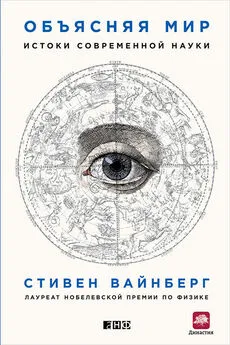
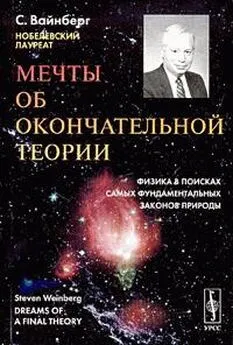
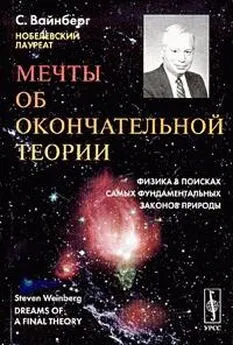

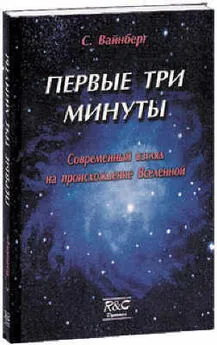
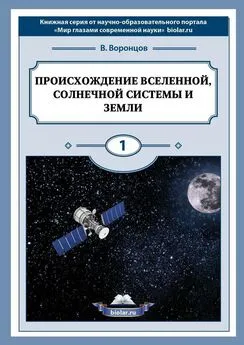
![Стивен Вайнберг - Первые три минуты [litres]](/books/1068055/stiven-vajnberg-pervye-tri-minuty-litres.webp)
